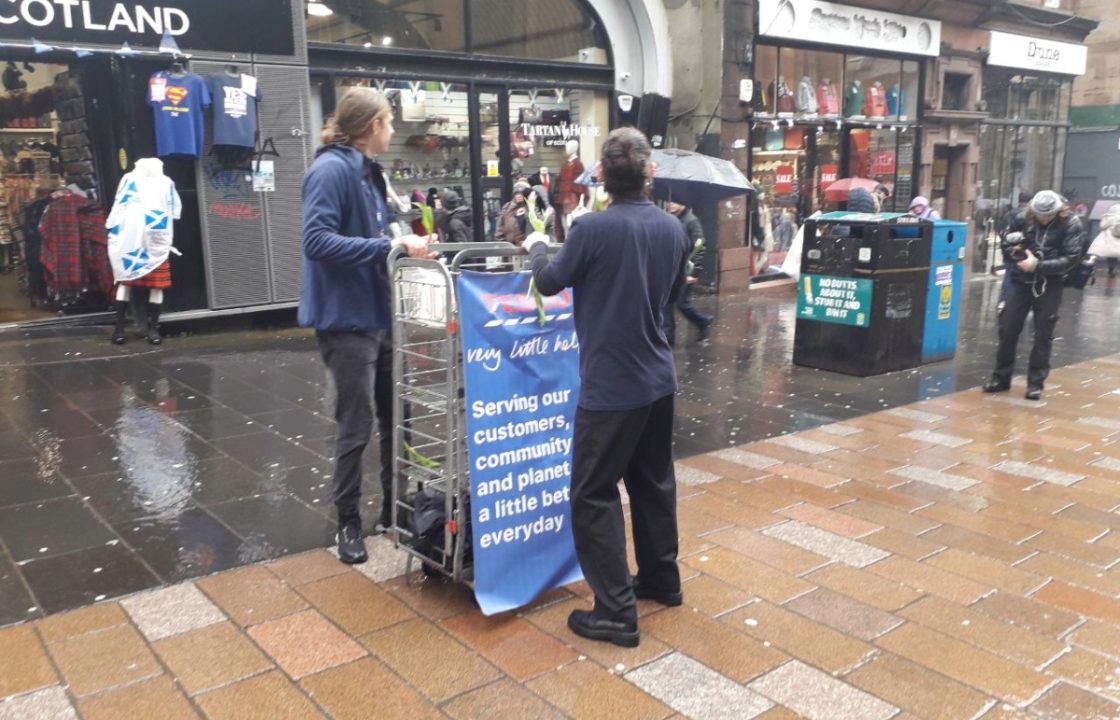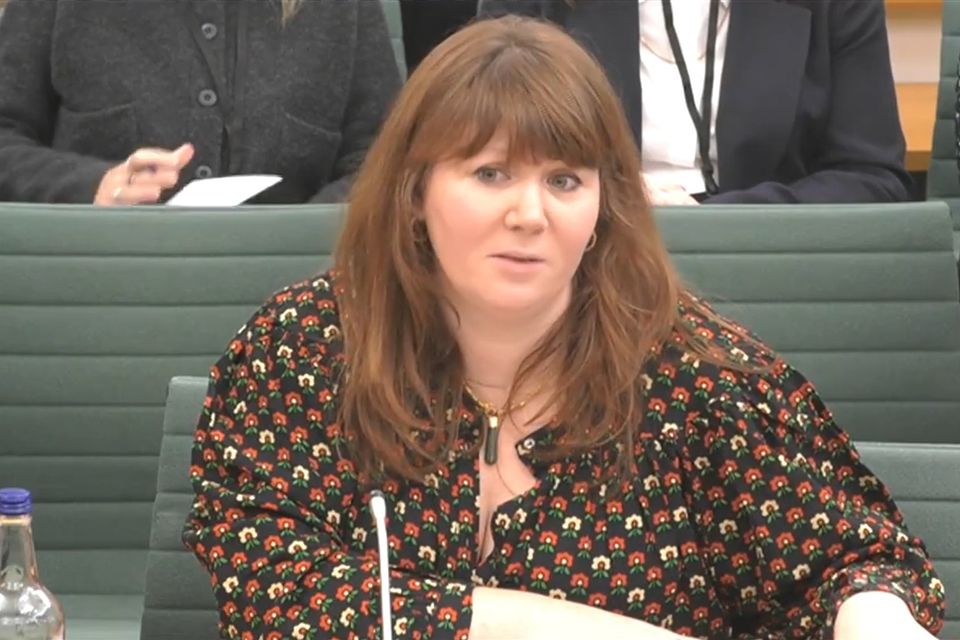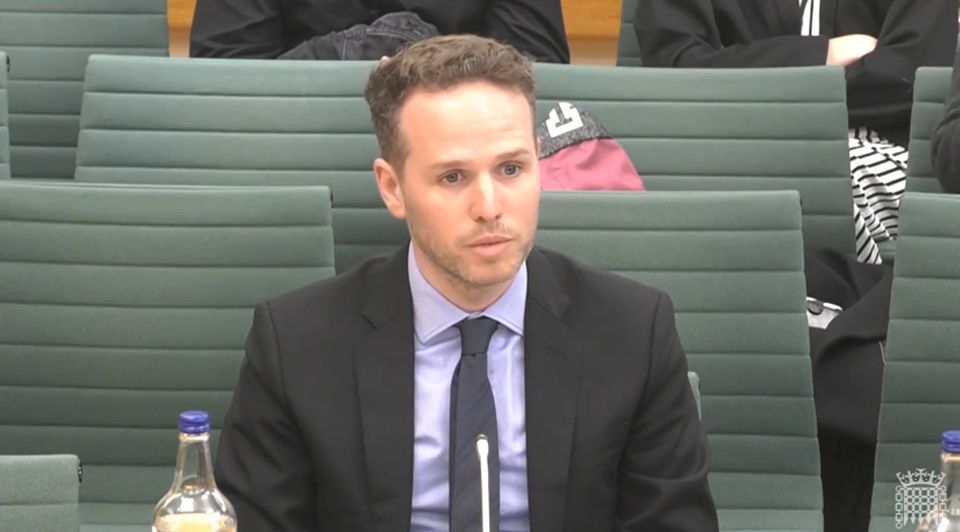A justice 'makeover'
by The Canary
21 February 2024
On Wednesday 21 February, over 100 people gathered within the central hall at the Royal Courts of Justice, London, to hold a series of peaceful People’s Assemblies or ‘Citizens Juries’, in what is being described as ‘a makeover’ of British Justice.
Legal twists and turns
The Assembly has been prompted by the Attorney General’s application, being heard in court, to stop juries acquitting people taking direct action against climate change and for peace in Gaza. You can read more about the case here.
Judge Reid, who is currently hearing a trial of Extinction Rebellion activists at Inner London Crown Court which would be affected by the ruling, said on Monday 19 February he was ‘hopeful’ the Court of Appeal would reach a decision today (despite that being unusual for the Court of Appeal).
However, at 11:50am on 21 February Reid suspended the Extinction Rebellion case – saying he wanted to wait for the outcome in the Court of Appeal. As campaign group Defend Our Juries noted on X:
The Court of Appeal hearing on the Attorney General’s case will also include consideration of the wider legal landscape, including the:
Post Office/Horizon scandal.
Lack of legal accountability for the bosses of the banks responsible for the financial crisis of 2008.
Bosses of the oil and water companies that have caused so much destruction to our land, air and waters.
Ministers responsible for violations of international agreements, including the Paris Agreement on Climate Change, the Refugee Convention, and UN rulings on Gaza.
Occupying the Royal Courts of Justice
The three themes of the assembly reflected the three cases of far-reaching significance which are being heard simultaneously at the Royal Courts of Justice on 21 February:The Attorney General’s attempt to stop juries reaching not guilty verdicts in trials of those taking direct action to support peace, climate action or democracy.
Final appeal against extradition of Julian Assange.
Legal challenges to the government’s net zero target.
At 11:11am, in remembrance of the democratic freedoms our grandparents fought for, over 100 citizens quietly stood up and left the public gallery of courtroom four in the Royal Courts of Justice (and a spillover court), as the court deliberated on removing the last remaining legal defence currently left open to people taking direct action for the environment and for peace. Those people have now reconvened together in the central hall of the courts.
In an expression of authentic justice and democracy, members of the public then held three people’s assemblies, providing a space for people to discuss the issues arising from the court hearings together:
People’s Assemblies are used around the world successfully by local authorities, governments, and communities to present issues of public relevance and gain agreement on actions or decisions needed. On Sunday, it was announced that the Labour Party likewise plans to introduce Citizens Assemblies.
The concerned members of the public have formed three Citizens Juries to consider the following questions:
1) When did it become a crime to tell the truth?
2) Why not trust juries to hear the full story?
3) Does the British Government respect International Law? Each court will produce a judgement, which will be circulated to members of the press.
So far, no arrests at the Royal Courts of Justice
The People’s Assembly at the Royal Courts of Justice was entirely lawful and peaceful, and did not intend to cause disruption to the ordinary running of the court. Participants circulated a note to court staff explaining there was no intention to disrupt any court activity, but only to conduct a lawful and peaceful assembly. They indicated an intention to remain in place until the assembly has concluded.
As of 12pm on 21 February, there had been no arrests – despite participants risking this. Police had arrived:
Those who attended the People’s Assembly gathered wearing T-shirts that read “The People v. The Corporate State”. A Banner saying “Welcome to the People’s Assembly” was unfurled within the central hall.
Defend Our Juries: defending the rule of law
A spokesperson for campaign group Defend Our Juries said:
The rule of law means that no-one should be above the law, even if they are rich and powerful. But what we’re seeing in reality is that the bosses of the big banks and corporations such Fujitsu, or BP and Thames Water are as untouchable as the crime bosses in a mafia state – no matter the damage they cause or the lives they destroy.
On the other hand, good people like all those sub-postmasters and peace campaigners, are prosecuted and imprisoned, just for doing their job or for taking measures to protect life.
The courts belong to the public, not the big corporations. That’s why we’re holding this peaceful assembly in the Royal Courts of Justice today.
In defence of the rule of law, trial by jury and our democracy. Given the state of repression in Britain right now, which the UN has recently described as ‘terrifying’, we’re prepared for arrest if it comes to it. But that would make our point for us.
We’re not out to cause disruption. We’re peacefully exercising our democratic right to freedom of assembly to address the crisis in our justice system. If the court has us arrested, it’s the court that’s acting unlawfully, not us.
Featured image via Plan B – screengrab and additional images via Defend Our Juries



 Swine flu: first human case of flu strain H1N2 found in the UK, says UKHSA
Swine flu: first human case of flu strain H1N2 found in the UK, says UKHSA Alaskapox virus: symptoms, did case come from a cat, how is it spread, is it fatal - will it come to the UK?
Alaskapox virus: symptoms, did case come from a cat, how is it spread, is it fatal - will it come to the UK? First human plague case in eight years recorded in United States - symptoms explained
First human plague case in eight years recorded in United States - symptoms explained






